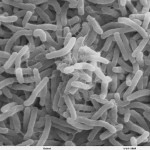Crowdsourcing Sanitation Solutions in Ghana
 In Ghana’s second largest city Kumasi, lack of access to adequate toilet facilities either in the household or in public spaces is a common problem.
In Ghana’s second largest city Kumasi, lack of access to adequate toilet facilities either in the household or in public spaces is a common problem.
Though makeshift solutions can provide some help they can also create serious health risks through the spread of cholera, dysentery and other diseases. This scenario is not uncommon in many other places in the developing world.
To help improve life for Kumasi residents, Unilever turned to open innovation for ideas to improve toilets and waste management.
The multinational consumer company partnered with IDEO, a global innovation and design firm, and Water and Sanitation for the Urban Poor (WSUP) to create the OpenIdeo Challenge to harness the creativity and ingenuity of a 35,000+ member social innovation community.
Value of the Crowd
More than 200 ideas were submitted and included concepts to empower mothers and adopt-a-drain campaigns. These ideas fed into Unilever’s solution which is a five-step, sustainable ecosystem for distributing and servicing portable toilets to low-income households.
According to the project’s organizers the value of the crowd was that it extended the scope of sanitation needs and made the product and the service more robust. And it did so in a rapid time frame according to an interview with Unilever’s James Inglesby in UK national newspaper, The Guardian.
“Within two weeks, the OpenIdeo community had surfaced everything that it took us nearly a year to find.”
Toilets for Rent
The solution is a non-flush in-home toilet that can be rented and it comes with waste cartridges that are replaced between two and four times a week. It falls under an umbrella service called ‘CleanTeam’ which is directed by Unilever and WSUP.
A test project in 100 homes refined the concept and currently there are 110 customers with 300 more on the waiting list. The toilet is proving to be popular, not only because it is safer and more hygienic than public toilets, but also because of pride attached to having a toilet in your own home.
You can find out more about the project in this video:
Reader Comments
harvesting rainwater for general usages like flushing the toilet, washing, bathing etc might be useful?
In the old days, people carried human waste from home to their little farms each day, to be used as fertiliser. The old method of organic farming. Everyone was healthier than the Z generation. May be because of the diet, it wasn't particularly harmful. If the diet of the Ghana is corns and vege based, may be a system can be created to test this old method out? If things have changed and they are eating lots of meat, then, don't........
Posted by garfield on November 22, 2012
Add your Comment
[LOGIN FIRST] if you're already a member.fields are required.
